Bookshelf is a monthly column examining printed matter relating to television. While I love watching TV, I also love reading about it, from tie-in novels to TV Guides, from vintage television magazines to old newspaper articles.
The Great TV Sitcom Book
By Rick Mitz
First Published in 1980
Published by Richard Marek Publishers
440 Pages
I bought my copy of The Great TV Sitcom Book at a used bookstore in Cape Cod a few years ago. It cost $7, marked down from $15 and to be honest it probably wasn’t worth $7. I admit to buying it without really looking through it, so it’s my fault that I didn’t know what I was buying.
Like most books about television, most of the information contained in The Great TV Sitcom Book can easily be found online. That’s not the problem. Based solely on the title and cover and leafing through without paying attention, I was expecting some sort of television encyclopedia like Total Television or The Complete Directory to Prime Time Network and Cable TV Shows only all about sitcoms. But The Great TV Sitcom Book isn’t encyclopedic at all.
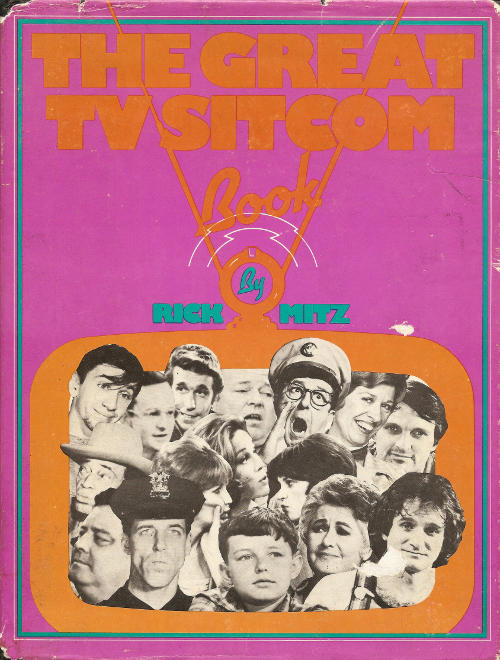
Front cover to The Great TV Sitcom Book – Copyright 1980 Richard Marek Publishers
It is fairly comprehensive in scope, covering nearly every sitcom aired between 1949 and 1980, listed by season. But it’s very limited in scope. Only a handful of shows each season are described in depth. These are referred to as Front Runners. All other shows are called Also Rans and receive, at best, one or two paragraphs. Some seasons, including four consecutive from 1966 to 1969 — Mitz decided there weren’t any Front Runners.
Front Runners/Also Rans: 1954-1955
Front Runners:
December Bride
Father Knows Best
Love That BobAlso Rans:
Dear Phoebe, The Donald O’Connor Texaco Show, Hey Mulligan, Honestly Celeste!, It’s a Great Life, The Joe Palooka Story, Mayor of the Town, Norby, Professional Father, So This is Hollywood, The Soldiers, That’s My Boy, Those Whiting Girls, Willy, The World of Mr. SweeneyFront Runners/Also Rans: 1966-1967
Front Runners:
NoneAlso Rans:
Family Affair, The Hero, Hey, Landlord!, It’s About Time, The Jean Arthur Show, Love on a Rooftop, The Monkees, Mr. Terrific, My Name’s McGooley, What’s Yours?, Occasional Wife, Pistols ‘n’ Petticoats, The Pruitts of Southampton, Rango, The Rounders, Run, Buddy, Run, The Tammy Grimes Show, That Girl
What differentiates a Front Runner from an Also Ran? According to Mitz, not much. It wasn’t necessarily about popularity or longevity. Some shows “were Significant or Especially Interesting or Important or Popular and I couldn’t leave them out.” Although he claims it wasn’t about whether or not he personally liked these significant shows, I find that hard to believe.
About the Also Rans, Mitz admits some might be borderline shows, or shows that were Popular only, but these were too similar to other shows to be deemed Front Runners. He then states “there were some shows that I simply couldn’t stand enough to write about for more than three paragraphs.”
In other words, The Great TV Sitcom Book is basically one man who loves television writing about his favorite sitcoms. There’s nothing wrong with that — in fact, it’s impressive that Mitz was able to parley his love of television into a book deal. But it doesn’t make for a very good reference work.
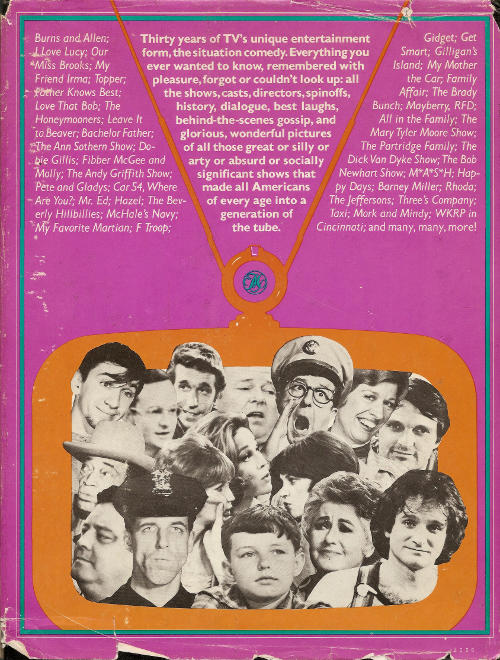
Back cover to The Great TV Sitcom Book – Copyright 1980 Richard Marek Publishers
For example, even the detailed summaries of the Front Runners don’t include basic information like the network, premiere dates or broadcast history. There is a cast list, however. The Also Rans don’t get that much.
I haven’t read through the entire book so I can’t speak to its accuracy overall. I’m guessing it includes the occasional mistake. One big one I noticed was The Bob Cummings Show being referred to only as Love That Bob, which was its syndication title. Also, in the writeup for M*A*S*H, Mitz refers to Clete Roberts (from the critically-acclaimed episode “The Interview”) as Clete Mathews.
At least two revisions were published, one in 1983 and another in 1988. If you’re a huge fan of sitcoms, it might be worth picking up a copy of The Great TV Sitcom Book. If you’re more interested in having a nice reference, you should look elsewhere.
See Also:
In December 2008 I reviewed The Complete Directory to Prime Time Network and Cable TV Shows, perhaps the best television encyclopedia ever published.
In July 2009 I reviewed Total Television, another television encyclopedia.
In March 2010 I reviewed The Complete Encyclopedia of Television Programs, 1947-1976, considered the first television encyclopedia.
And in October 2013 I reviewed The SCI-FI Channel Encyclopedia of TV Science Fiction, another genre-specific publication that, like The Great TV Sitcom Book, had its problems.
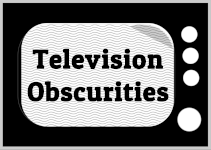
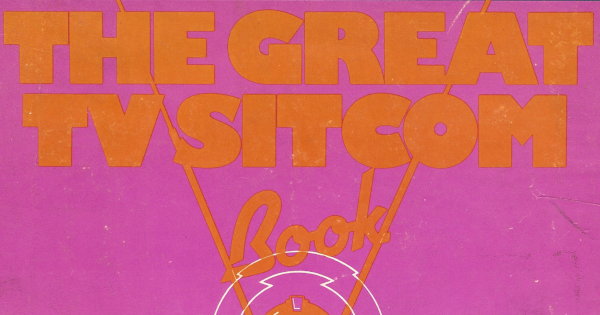
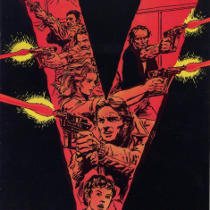

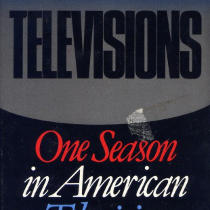



I bought Mitz’s book back in 1980 when it first came out. I was 12. It was great reading then in the days where information wasn’t readily obtainable. While he missed some of my favorites as front runners, I do share his affection for Car 54, Bilko and Love That Bob among others. I haven’t revisited it in a while, but I remember reading it cover to cover several times back in the day.
I think your scholar’s eye for research, detail and attribution caused you to miss the point of “The Great TV Sitcom Book.” Although informational, it was primarily intended as an affectionate recollection of favorite and popular programs from the distant to the recent past. It appealed to the mass audience of pop culture lovers and nostalgia buffs. Like the previous poster, I also recall reading Mitz’s book cover-to-cover in the early ’80s. At the time, I was struck by the liveliness of Mitz’s writing: the enthusiasm he had for his subject was, for me, infectious. It made me want to see all those great shows, an endeavor then severely limited to what could be seen in reruns locally or on cable. For those of us reading Mitz back then, the author’s descriptions and reminiscences, by necessity, “stood-in” for the actual shows (which weren’t widely available). To that end, he does a good job capturing the spirit of the “front runners” he discusses.
My original disappointment with the book was for reasons somewhat similar to your own, namely that arbitrary mention was made of “Also Rans” without much elaboration. It would have been pleasant for Mitz to have given the same lively treatment to these “lesser” shows and for him to have provided a better foundation for ranking them on a lower tier. To a certain degree, Mitz’s format is similar to another popular entertainment book of the day, George and Michael Medved’s “Golden Turkey Awards,” in which the leading contenders are summarized and the “winner(s)” given a fuller treatment. This exclusionary set-up invites criticism, especially from someone such as you whose approach to the subject is inclusive and scholarly. Both books also share an informal, sometimes folksy writing style, which makes it clear that they’re not rigorously-researched reference books.
I found Mitz’s work to be endearing and rather friendly. It made me want to see these phantom programs which had been eclipsed in reruns by “I Love Lucy,” “The Dick Van Dyke Show” and “Gilligan’s Island.” In particular, Mitz’s recollections of “My Little Margie,” “Our Miss Brooks,” “December Bride” and “Car 54, Where Are You?” were affectionate and informative introductions to the programs. The book had tremendous appeal both to newcomers, such as I, and nostalgia buffs who wanted to revisit their favorite shows.
In this day, though, Mitz’s book doesn’t have the same shelf-value it did back in the ’80s. There are so many excellent TV websites, your remarkable blog, and an embarrassment of riches in the form of DVD complete series boxed sets, streaming choices, YouTube uploads, Internet Archive uploads etc. Never has there been a better time than now to experience and research TV history. To think of actually having so many programs at my fingertips and actually OWNING multiple complete series! It’s astonishing! Still, I think Mitz has relevance today as an essayist. His writing has not lost it’s charm, and “The Great TV Sitcom Book” still serves as an enjoyable introduction to our great video past.
At first, I relished Mitz’s book. Until, after a while, I noticed his very snide and sarcastic opinions (especially in the “Also-Ran” sections). I didn’t care for his curt dismissal of “THE PATTY DUKE SHOW”- “Sounds like two shows in one” {DID he ever watch it?}. And his claim about “I DREAM OF JEANNIE” being “a nightmare”— and some of his information was incorrect{Gleason’s “THE LIFE OF RILEY” was on NBC, NOT DuMont– and there were 180 episodes of “I LOVE LUCY”, with 179 syndicated- not “179”, with “178” syndicated}. And THEN, I noticed that much of his information was lifted verbatim from Vincent Terrace’s “Encyclopdia of Television”, and Brooks & Marsh’s “Complete Directory To Prime-Time Network and Cable TV Shows” (and to an extent, Gary Grossman’s “Fantastic Television”). Their publishers noticed, too- and insisted that most of the material he “borrowed” had to be eliminated from the next edition of the book, or they’d SUE. This is WHY the “Also Ran” sections were eliminated from the third- and final- edition…and why the book looked VERY SLIM.
I bought the 2nd edition of this book, published in 1983. Mr. Metz believed, and I’m sure had a lot of agreement here, that the early 80s were a lean time for sitcoms. He had no front-runners for 1980-83, making all 3 seasons “Whatever Happened to…” seasons. This included 1982 premieres CHEERS & FAMILY TIES, which were both upgraded to “Front Runner” status in the next edition of the book, and the sitcom that is believed to have turned around the fate of sitcoms in 1984, THE COSBY SHOW, was a designated “Front Runner” in its own premiere season.
My feelings over Metz’s book echoes yours as well as Vince Waldron’s more detailed episode guide of the best sitcoms and I say that because they do have the habit of putting THE HONEYMOONERS in as a popular sitcom even though is was really a flop when it originally aired. Personal preference-that is all!